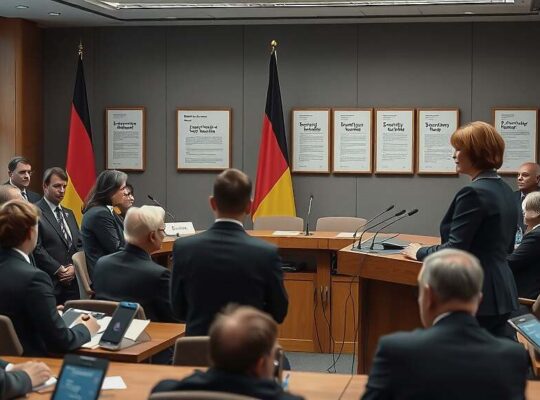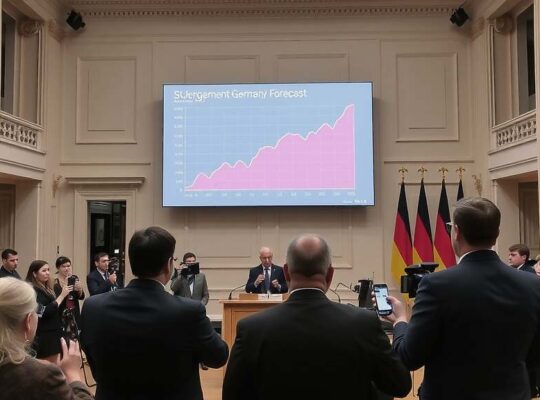The North Rhine-Westphalia (NRW) state government, spearheaded by Culture State Minister Wolfram Weimer, is poised to initiate a legislative process for a digital tax as early as this year, aiming for implementation by 2026. Weimer, in an interview with ntv, revealed plans to introduce a key policy paper for parliamentary discussion as soon as November, setting the stage for a swift legislative trajectory. The proposed tax, modeled after Austria’s existing framework, is specifically targeted at large technology companies exhibiting monopolistic structures, referred to by officials as “Big Tech.
The initiative enjoys strong backing from Nathanael Liminski, Head of the State Chancellery’s Media Department, who emphasized the intention to channel revenues “into billions, not millions” supporting journalists and creative professionals generating content and intellectual property. Liminski articulated a vision for the digital tax to become “a pillar of financing for the creative and media landscape.
Beyond the immediate financial implications, the move is underpinned by increasingly vocal concerns surrounding the ethical and structural challenges posed by rapidly advancing artificial intelligence and the dominance of foreign platforms. Weimer launched a scathing critique of the development practices employed by major AI platforms, characterizing the process of training large language models as a “systematic, historical raid” on global knowledge. He challenged the legitimacy of this extraction, questioning whether adequate consent had been obtained. This sentiment resonated with Liminski, who pointed to the billions of dollars accumulated by platforms profiting from the free use of others’ work.
The proposal is presented not merely as a revenue-generating measure, but as a crucial defense against the potential erosion of German media diversity and the growing influence of foreign technology companies operating under fundamentally different conceptions of freedom and responsibility. Liminski delivered a stark warning: “This isn’t just about the survival of the media industry. It’s about the survival of liberal democracy”. Weimer echoed this urgency, declaring that the current architecture of the information society is “incompatible with the survival of our democracy” signaling a broader political strategy aimed at reshaping the digital ecosystem and safeguarding democratic values in the face of multinational tech giants. The initiative represents a concerted effort to rebalance power within the digital sphere, although its practical implementation and potential legal challenges remain to be seen.












